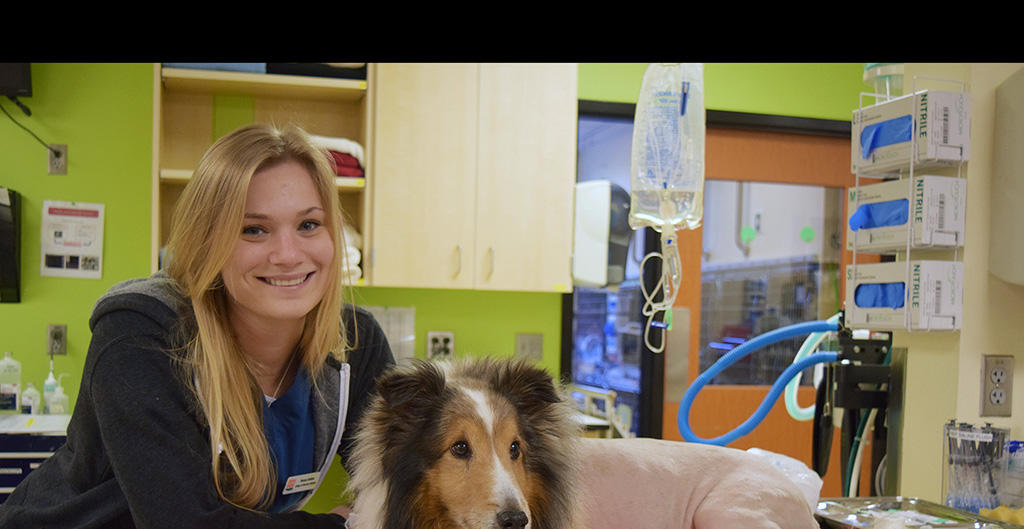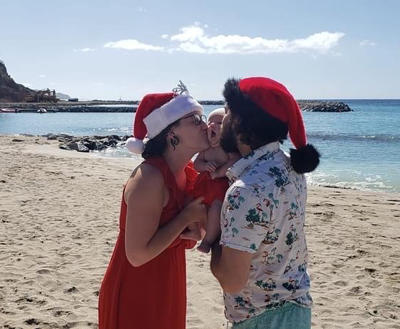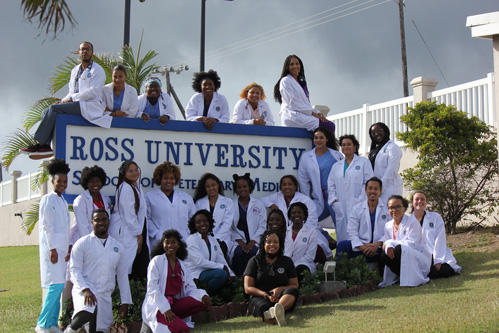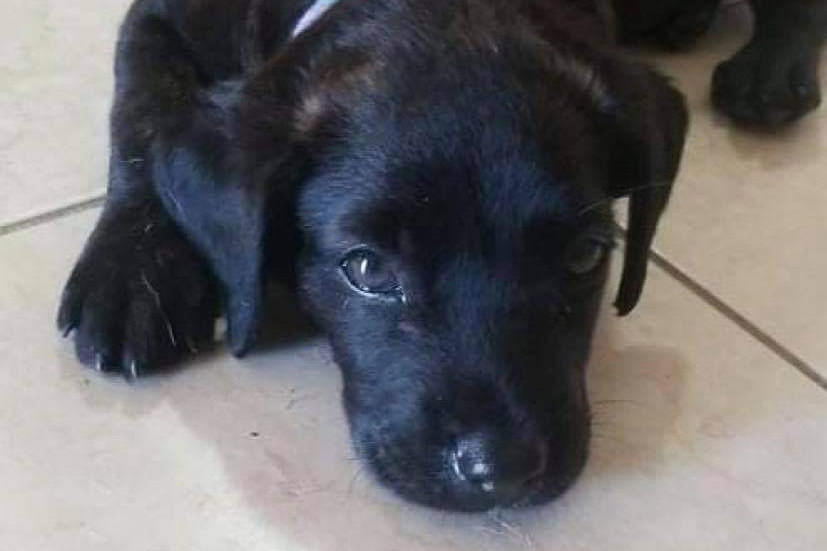At the time, Golden was an extern at DoveLewis Emergency Animal Hospital in Portland, Oregon.
Ollie, a 10-year-old Sheltie, was almost completely paralyzed. He wasn’t eating or drinking, and couldn’t go to the bathroom on his own. After multiple tests and still no answers, it seemed as though there were few options left.
While prepping the dog for the euthanasia procedure, Golden comforted him, petting him and scratching behind his ear. That was when she felt the strange lump that turned out to be a bloated tick—and the cause of Ollie’s mysterious paralysis.
1. She was able to see Ollie fully recovered on the last day of her externship.
“When I found the tick, we all said ‘Oh my God, is this it?’” Golden says. “But it wasn’t an immediate relief. It was scary because we still didn’t know for sure if the tick was the cause. Nothing showed up on the bloodwork. And it could take two to three days after removing it to know one way or the other.”
Happily, the answer came just 10 hours later: Ollie was back to his normal self and fully recovered. While there was no need for him to come back to the hospital, his owners brought him back the next day.
“The owner said he was so happy he had his buddy back,” Golden says. “And I was so glad because I didn’t think I was going to get to see him healthy and walking around. I told the team after they removed the tick, ‘You guys have to call me when you find out, or I’m going to be calling you!’”
2. She drove 44 hours across the country to get to her externships.
Golden is from Meriden, Connecticut, located halfway between New Haven and Hartford. That’s where she started her multi-day drive this past January to begin her clinical veterinary training and externships in the Portland area.
While her heart is in the Northeast, she jumped at the chance to spend a year living in the Pacific Northwest. “It’s beautiful, and I love the outdoors,” she says.
3. She’s volunteered abroad to provide desperately needed veterinary care.
Last spring, Golden went to Costa Rica for two weeks with VIDA, a nonprofit organization that coordinates health service trips to Central America. Golden participated in a program to provide veterinary care to animals in need.
“Some of these animals were so emaciated, and I was happy to be able to help them,” Golden says. “The people appreciated it so much. Even though there was a language barrier, you could see it in their faces.”
4. Working in clinics has taught her to “hug her dog more.”
Reflecting on her externship experiences so far, Golden says, “Most places I’m working at are referral hospitals. So I interact with a lot of the more serious issues like cardiology and cancer.”
She pauses to gather her thoughts. “I didn’t realize how touching all the stories behind each patient would be. It gets to me. It definitely makes me want to hug my dog more.”
5. She’s thankful for the camaraderie and support at RUSVM.
Golden describes RUSVM students as a tight-knit group, supporting each other and helping ensure each other’s success. “Rossies are very close together,” Golden says. “I wouldn’t be where I am today without my boyfriend and my friends that I met on the island.”







